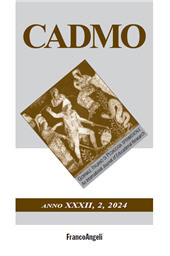Leggere il fattore ESCS attraverso sguardi non semplificati : l'impatto dei contesti scolastici sui risultati INVALSI in Matematica in un'analisi esplorativa su sei istituti secondari di primo grado
20-43 p.
This study examines the interplay between students'socioeconomic and cultural status (ESCS) and their performance in mathematics, focusing on disadvantaged school contexts in Italy. Despite the democratic ideal of education as a tool for equitable intellectual and economic emancipation, numerous studies highlight persistent disparities tied to socioeconomic background. These disparities are particularly pronounced in Italy, where ESCS remains the most significant predictor of performance variability in national (INVALSI) and international assessments (OECD, IEA), with a marked North-South divide. The research explores the evolution of students'mathematics scores in schools situated in socioeconomically disadvantaged areas, focusing on changes observed diachronically before and after the Covid-19 pandemic. It also examines the relationship between individual ESCS and academic performance over time across different school contexts.
To address these questions, the study analyzed mathematics INVALSI data from 2019, 2021, 2022, and 2023 for eighth grade students from six lower secondary schools in economically disadvantaged areas spanning North to South Italy. Using descriptive analyses and moderated linear regression models, the study explored interactions between students'ESCS and school affiliation. Results revealed a notable trend in one specific school: by 2023, individual ESCS no longer significantly influenced mathematics performance. This finding suggests potential shifts in school practices or external factors mitigating the impact of socioeconomic background on academic achievement. The implications of these results, particularly in light of the broader educational equity discourse, are discussed in detail in the full article. [Publisher's Text].
-
Articles from the same issue (available individually)
-
Information
ISSN: 1972-5019
KEYWORDS
- educational equity, sisadvantaged school contexts, socioeconomic disparities, mathematics achievement, INVALSI assessments


